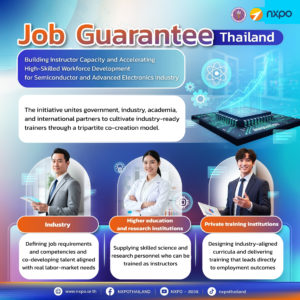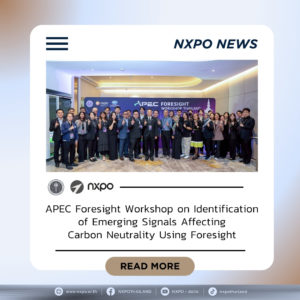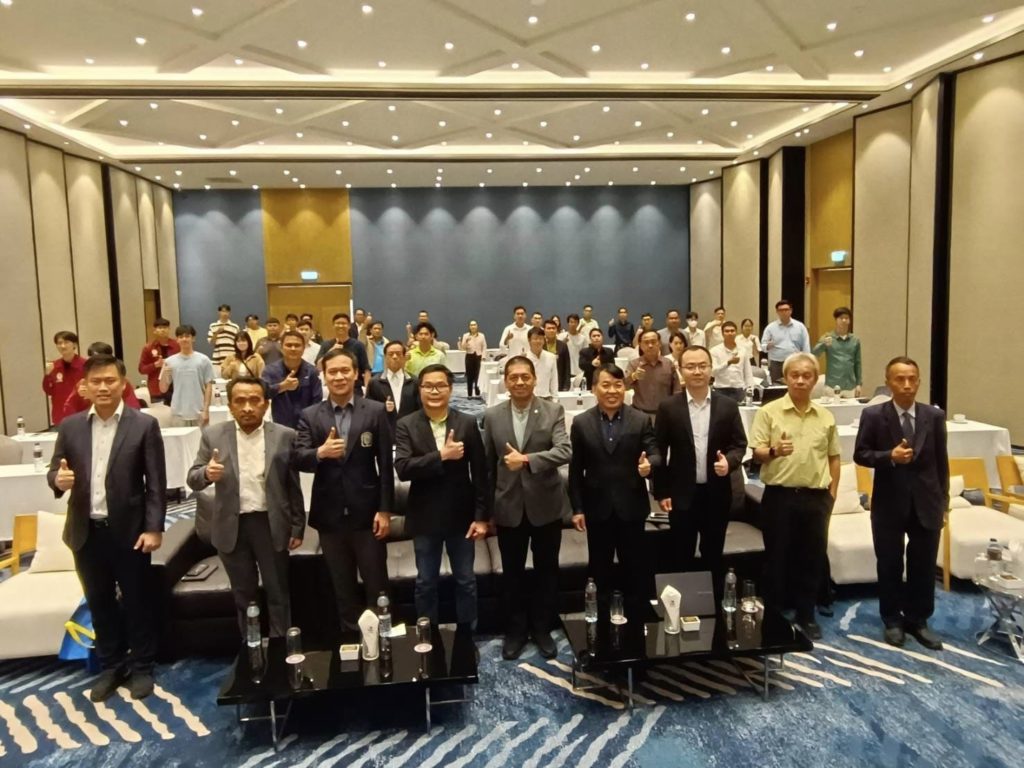
Kasetsart University Sriracha Campus, in collaboration with NXPO, the National Science and Technology Development Agency (NSTDA), the Electric Vehicle Association of Thailand (EVAT), the Thailand Automotive Institute and partner institutes, organized a seminar and workshop on “Transforming Thailand into ASEAN’s EV Hub” on 27-28 January 2024.

In his opening remarks, Asst. Prof. Dr. Suphattharachai Chomphan, Assistant to the President for Administration Sriracha Campus, Kasetsart University, stated that the development of electric vehicle (EV) industry will not only boost the economy but also foster a sustainable society. Therefore, Kasetsart University is committed to developing technology and manpower to drive this vital industry. In doing so, the university, in collaboration with EVAT and partners, has organized two design contests for electric motorcycle conversion. As the EV and energy sector will play a crucial role in driving Thailand towards a sustainable future, it has been included as one of the nine sectors in the university’s New S-Curve workplan. Dr. Suphattharachai also outlined the objective of this seminar as aiming to promote the development of EV industry and human resources for EV research and innovation and provide an update on the EV policy in Thailand and other countries such as China, preparing Thailand to become the EV hub of ASEAN.
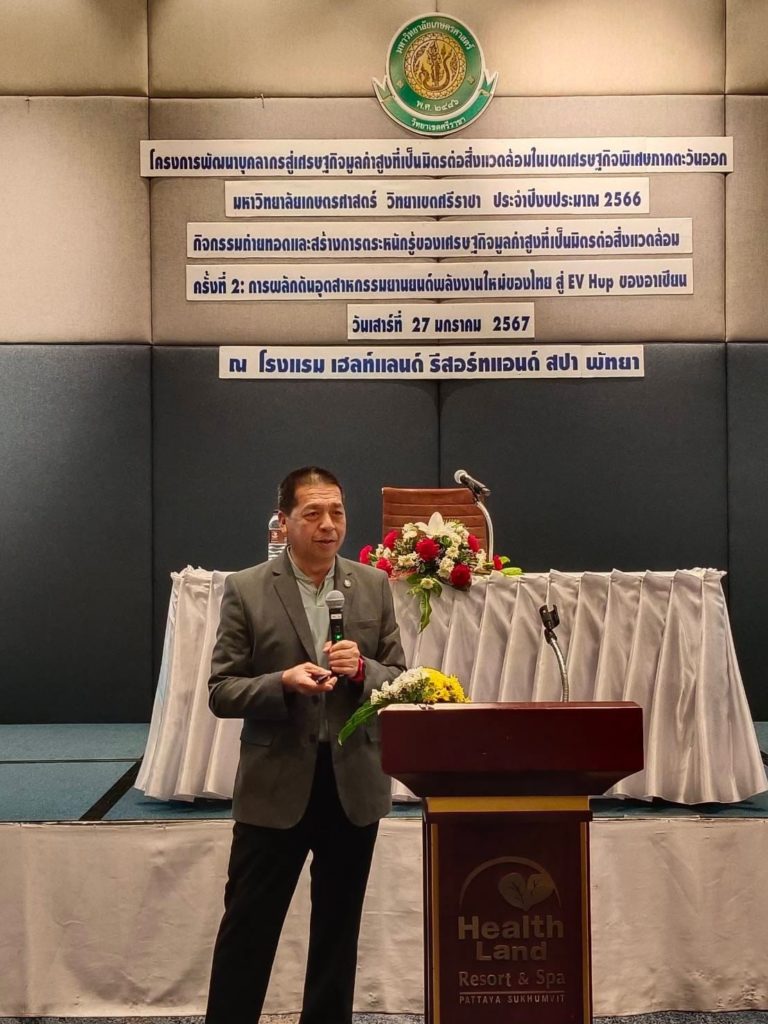
Mr. Suroj Sangsnit, Executive Vice-President of SAIC Motor-CP and Vice President for Industry & Business Development of EVAT, gave a presentation highlighting the current situation, readiness, and opportunities of the Thai EV industry and its potential to become the EV hub of ASEAN. EV production in Thailand is expected to reach 725,000 units per year by 2030, accounting for 30% of total vehicle production. Thailand’s EV sales are currently the highest in ASEAN, accounting for 79%, indicating its readiness for the transition to electric vehicles. In addition to this high adoption rate, the Thai government has also introduced support measures to promote the manufacturing of EVs and EV components, established standards for EVs and EV parts, and attracted global EV companies to invest in Thailand. Mr. Suroj also emphasized challenges which need to be addressed through concerted effort of the public and private sectors. These include the establishment of sufficient charging stations, the development of EV-related infrastructure, the management of used batteries, the development of skilled workforces and technological capability.
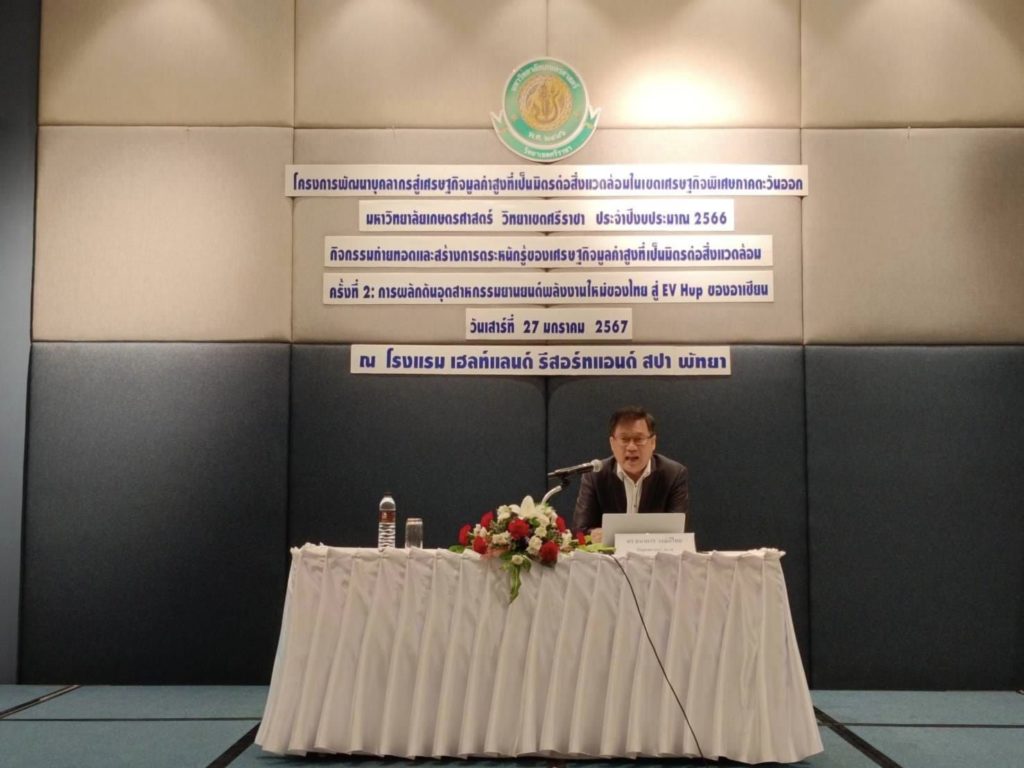
Dr. Thanakarn Wongdeethai, Secretary of PMUC’s Future Mobility Program Committee, NXPO Strategist and President of the Electric Vehicle Conversion Association of Thailand (ECAT), gave a presentation on policies and support measures to promote EV conversion. His presentation covered areas such as trends and challenges, policies and goals, transition strategies, technological development, supply chain and support mechanisms implemented by both the government though the National Electric Vehicle Policy Committee and the industry through various organizations including ECAT.

Asst. Prof. Dr. Uthane Supatti, Assistant to the President for Research and Innovation Sriracha Campus, gave a presentation discussing his research experience in converting a gas-power truck into an electric vehicle. The presentation outlined the modification process, testing, challenges, and user feedback to guide future directions of Thailand’s EV conversion industry.


